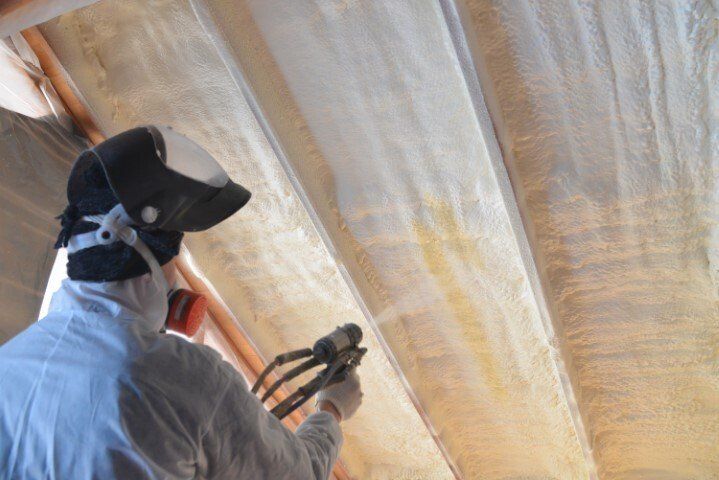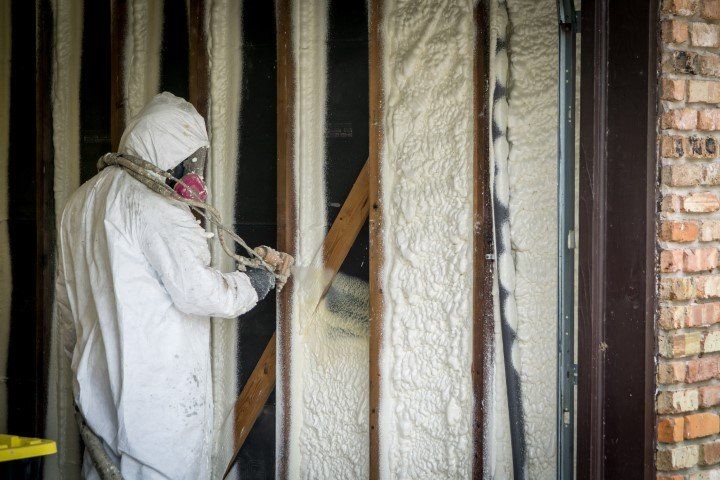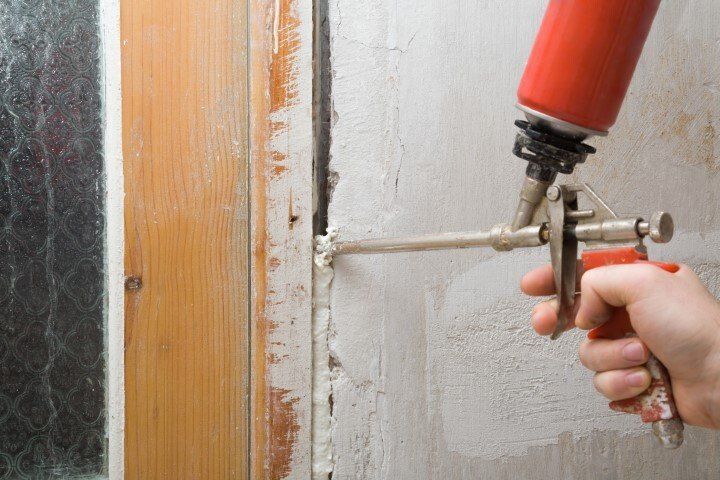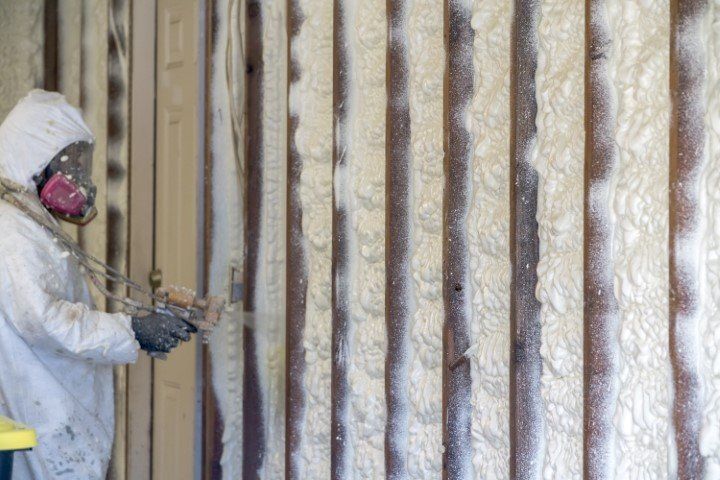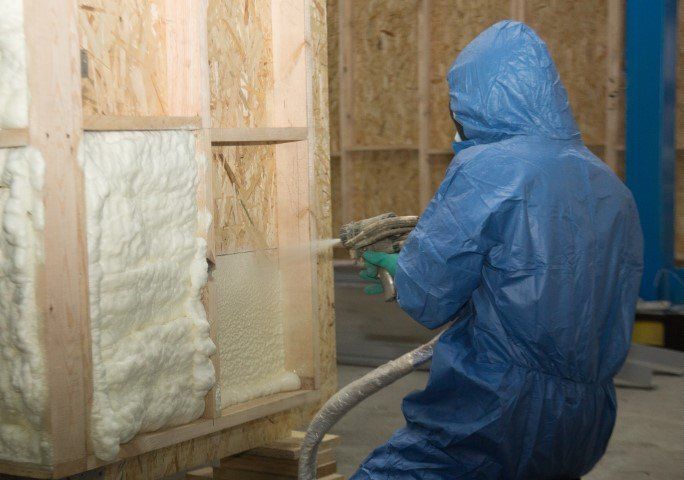Parkwood Spray Foam Insulation
Our Spray Foam Insulation Services Provides A High-Quality and Fast Services To The Greater Phoenix Community.
Get A Free Estimate Today!
Your Spray Foam Insulation Specialists in Parkwood AZ For Homes & Business
Spray foam insulation is an air barrier and insulation that protects wall, floor, and ceiling cavities from airflow. This includes the areas close to electrical outlets and lighting fixtures, as well as the regions where walls and windows and doors meet. In open spaces like rim joists, attics, crawl spaces, and new construction, spray foam can be applied. It can also be used to pole barns, commercial structures, and already-built dwellings. Spray foam can be applied as long as the cavities are accessible and open. Never losing its shape is spray foam. Spray foam fills cracks, gaps, and crevices upon installation, in contrast to conventional insulating materials. It won't shrink, droop, or settle over time.
There are numerous justifications for updating your insulation, but why opt for spray foam insulation? Homeowners in Parkwood, AZ choose to spray foam insulation for a number of reasons, and their choice is typically based on the material's advantages. Due to your home's inability to maintain a steady temperature, you may have excessive energy costs all year long. In this case, the air seal produced by spray foam can be helpful. When utilized throughout the house, this seals the building envelope, preventing air leaks both inside and outside the house. Your home's air leaks will be stopped by air sealing, which means your furnace and air conditioner won't need to operate all the time. You'll wind up paying less each month for electricity as a result of this.
Spray foam's air seal prevents drafts from entering your house as well. Any location where air may enter will do so. The spray blocks that air movement because of the way it penetrates every crevice. Condensation on the walls is another issue that spray foam can address. Condensation is created when the inner and outdoor temperatures of the home are significantly different from one another. Walls with minimal to no insulating coverage experience this. In a situation like this, the air seal produced by foam insulation can aid in preventing the formation of condensation. The barrier the foam has built between the treated air inside and the outside air prevents condensation from forming.
Ice dams are a significant problem for homeowners in the winter. When water freezes on the roof and is melted by heat loss from the attic, it runs down the roof and forms an ice dam at the gutter end of the roof. In some circumstances, the ice dams can be avoided by using spray foam insulation in Parkwood, AZ to establish an airtight seal in the attic. Your home's cleaned air circulates upward to the attic area. This warm air cannot escape through the roof of the attic thanks to the insulation of the roof deck. The ice dams can be avoided by preventing that airflow. Want to know more? Get in touch today with the insulation specialists at Phoenix Spray Foam!
Types of Spray Foam Insulation
One-of-a-kind insulation and sealing material is spray foam. Since the product is used on-site, it adapts to the surface to which it is applied. This application procedure results in a tightly sealed building envelope, increasing energy effectiveness. Mixing and reacting special liquid ingredients produces spray foam insulation and insulating foam sealants. The liquids react very rapidly when combined and placed on the job site, expanding upon contact to produce foam that insulates, fills gaps, and can build the air, moisture, and vapor barriers. Spray foam in Parkwood, AZ is adaptable and can be used to cover wall cavities, exterior walls, attics, crawl spaces, and little gaps and cracks all around a house. Spray foam solutions can reduce air infiltration and air movement throughout the house, which lowers energy consumption, reduces the entry of allergens and pollutants, and improves comfort. Every type of spray foam and application technique has its own advantages. Spray foam can be used for insulation and other particular applications in one of three ways:
High-Density
- 3 lbs./cubic ft., closed-cell foam
- R-Values start at 5.5 per inch*
- Often used for exterior and roofing applications
When strong, high-insulation values are required, high-density spray foam in Parkwood, AZ is frequently used by builders. This foam has a denser structure than either of the other forms of spray foam, as its name suggests. Due to its smooth, monolithic construction, this spray foam is frequently a fantastic option for roofing or other exterior insulation. Because of its high thermal resistance, high-density spray foam can dramatically lower energy expenses throughout the course of a roof. Additionally, it reinforces the structure to which it is applied and provides improved protection against air and water infiltration. The link that spray foam creates with the roof can boost a building's resilience to wind uplift, minimizing damage sustained during strong wind events.
Medium-Density
- 2 lbs./cubic ft., closed-cell foam
- R-Values start at 5.7 per inch*
- Often used for continuous insulation, interior wall cavity fill, and unvented attic applications
Spray foam with two components applied at low or high pressure is medium-density foam. Depending on the environment and the type of construction, the medium-density foam in Parkwood, AZ has particular advantages. Similar to low-density foam, medium-density SPF is frequently used for unvented attics, internal wall cavity fill, and continuous insulation. However, medium-density spray foam is a closed-cell product and is frequently utilized in applications where the highest R-value insulation per inch is required. In addition to serving as an air, vapor, and water barrier, medium-density foam can also help with noise reduction. High tensile and bond strengths can also be provided by medium-density foam. Low vapor permanence can be provided, and it frequently isn't influenced by moisture like wind-driven rain.
Low-Density
- 0.5 lbs./cubic ft., open-cell foam
- R-Values start at 3.6 per inch*
- Often used for interior wall cavity fill and unvented attic applications
Low-density spray foam also referred to as open-cell foam, is sprayed on to create a continuous barrier that seals out air and serves as an insulator. Due to its weight of roughly 0.5 lbs, low-density SPF is often known as "12-pound foam." in cubic feet. The hardened foam retains some flexibility due to the open-cell structure of the foam. Two-component polyurethane spray foam with low or high pressure is used to apply low-density foam. Low-density spray foam in Parkwood, AZ can be used on walls, in vented attics, crawl spaces, ducts, and unvented attics. Although it is referred to be an air barrier, vapor and moisture can get through. It is frequently used during construction to seal cracks in walls. Low-density foam retains part of its softness and flexibility after curing as a result of its comparatively large cell structure. By filling the cavities, low-density spray foam insulates against heat transfer and stops airflow through joints, cracks, and seams. Additionally, because of its softer texture and open-cell structure, this foam can aid with sound absorption.
Major Advantages of Spray Foam Insulation & Why You Should Consider It
Spray foam insulation is suitable for both new and old homes, which is one of its best qualities. The advantages of spray foam insulation in Parkwood, AZ are worth considering if you're looking to insulate a new structure or upgrade an older one. The advantages of foam spray insulation might really help you save money on your costs, despite the fact that it is more expensive than other varieties. These two varieties of foam insulation are distinct. You can choose between open cell and closed cell spray foam depending on your demands. A closed cell is dense and performs better at preventing air and water from penetrating the walls than an open cell, which is more affordable and better at suppressing noises.
Due to the air that enters the cells, open cell insulation has a tendency to be more spongy. Insulation with closed cells is more solid and rigid. The strength that foam spray insulation gives the house's structure is one of its greatest advantages. Even if a storm tears off the roof, the attic is protected from water since the foam covers the cracks. Check out our list of various advantages of spray foam insulation if you want to learn more about the best kind of insulation.
Cooling and Heating Benefits of Spray Foam Insulation
Spray foams have the unusual ability to enter microscopic fissures and cracks. The foam quickly dries and expands after being injected directly into the fissures, sealing them off from both air and water. Foam insulation acts as a barrier against heat and cold as well as air and water. Foam insulation might be able to reduce your heating and cooling costs depending on where you reside. Although foam insulation is more expensive than other types of insulation, it will ultimately save you money on expenses.
Noise Reduction
Ever questioned what the new neighborhood might be like? What if the neighbors are young people who party rather than a peaceful, charming couple in their 60s? Spray foam with open cells has the power to greatly lessen noise. More noise is reduced by the foam's open cells than by other methods of insulation.
No More Pollen and Allergens In Your Building
Reducing the amount of pollen or other allergens that pass through the walls is one advantage of spray foam insulation. As opposed to other methods of insulation, the foam fills in cracks and crevices, preventing air from entering the walls. Help persons with allergies or respiratory disorders by limiting the entry of allergens into the building. fewer sneezes since less air is entering. Employees are happier and more productive in offices with spray foam insulation. You can also save money on medical expenses by insulating the interior of your home.
Keeps Insects, Small Rodents, & Other Pests Out of Your Property
Ants, beetles, and small rodents are welcome thanks to the tiny openings in your building construction. Spray foam can, fortunately, be used to fill the tiny cracks and crevices. If you want to build a barrier against microscopic invaders, closed-cell spray foam is your best option. The spray foam hardens once it enters the tiny gaps. Rodents and insects are discouraged by a sturdy barrier. You lessen your probability of being ill from rat feces by keeping insects and rodents out of your area.
Stops the Development of Mold and Mildew
Foam insulation with open or closed cells keeps moisture from penetrating your building's walls. Although condensation is reduced by both forms of foam, the closed cell spray foam acts as a barrier against huge amounts of water. The likelihood of acquiring health problems brought on by mold and mildew decreases the less water your walls allow to penetrate them.
Boosts the Durability of Your Walls
Closed cell insulation can really strengthen the construction of your walls because of its density and hardness. Every building must adhere to a code that mandates that the walls fulfill a minimum load-bearing standard in order to keep the structure together. Mother Nature, however, is not taken into account by the minimal standard. It can be difficult to prepare for powerful winds, a lot of snow, and earthquakes. Spray foam insulation has the advantage of getting everywhere and holding everything together like a strong glue. If you insulate your attic with closed-cell foam, storms might not damage your roof. Your building's worth may rise as a result of the extra layer of security added to your walls.
It Lasts Longer
Insulation made of fiberglass and Styrofoam is not a long-term solution. Over time, styrofoam cracks while fiberglass sags and bunches. Over time, these insulation types need to be replaced. Spray foam insulation, on the other hand, does not droop or crack over an extended length of time. Even though the initial cost is higher, spray foam will ultimately save you money.
Eco-Friendly
For anyone worried about maintaining a "green" home in Parkwood, AZ, we have some good news. Spray foam saves energy and guards your structure against the growth of mold and mildew. It uses fewer resources since it is more durable than any other sort of insulation.
When Is It Good To Use Spray Foam Insulation in Parkwood AZ?
For those who support spray foam insulation in Parkwood, AZ, there is never a bad moment to use the material. The advantages that it brings to an insulation project have made it a favorite among many professionals in the field, and it has also pleased a lot of customers. Spray foam products, also known as polyurethane foam, are frequently used in attics and roof cavities as well as inside walls and beneath floors. Spray foam insulation is sprayed into a space in a thick liquid form by a professional, where it hardens into a thick layer of insulation. One of its most advantageous product qualities is that it serves as BOTH an air barrier and a moisture barrier at the same time. It makes a room completely airtight and watertight, which makes it impossible for mold to grow there.
The best part is that there is no requirement to set up a separate, free-standing vapor barrier. In any insulation project, you want to achieve those high levels of insulation; in fact, the higher the better. With other insulating products, it's common to have gaps or openings that allow for heat (and cool) to be lost and for R-Values to suffer as a result. However, with a professional spray foam install, there are no holes or openings, and there is no heat loss. The entire interior air environment in a residential home benefits from having a home reinsulated with spray foam. The truth is, it's not uncommon to experience energy cost savings of up to 40% from one season to the next and especially in the extreme ranges of cold winters and hot summers. The improved insulation value allows HVAC equipment to perform better, especially if there is an energy-efficient furnace already in place.
There are, of course, some exceptions, but our skilled insulation installer in Parkwood, AZ will be aware of any restrictions and any safety implications. In some cases, our professional installer might advise "topping up" a spray foam install with another product, such as blown-in insulation. This is a tried-and-true method that combines the advantages of both products for better results. Do-it-yourself installation of spray foam is one of the major concerns that people have. The truth is that the average homeowner is not properly trained to handle or install spray foam. The chemical compounds require special handling, the equipment requires skill and expertise, and the installation itself requires some proficiency.
The DIY method can be dangerous, and hiring a professional insulation installer in Parkwood, AZ to correct poor work can be expensive. In terms of price, spray foam is a costly option. However, it must be viewed as an investment because the numerous advantages, both immediate and long-term, far outweigh the initial cost of the product and installation. In addition, the significant energy savings make the investment worthwhile year after year. In some cases, there may be government rebates or incentives that could be helpful in reducing the overall installation costs. With the help of Phoenix Spray Foam, you can improve your indoor air quality, energy efficiency, and comfort.
When Is It Not Good To Use Spray Foam Insulation in Parkwood AZ?
It's one of the newest and best advancements in insulation for homes in Parkwood, AZ. Spray foam insulation is quickly becoming the top choice for insulating your home since it provides more coverage and weather protection. Spray foam is a versatile product, but there are some restrictions to take into account. This flexibility allows it to grow and adapt to the space it insulates. Our experience team of insulation installers wish to provide you with some advice on when NOT to use this insulation before you improve your insulation.
For areas that are too close to electrical boxes:
While it is possible to put insulation between the back of an electrical box and the exterior wall, spray foam is generally not the best choice for this application. The parts could become jammed if you put the foam inside the box. Additionally, you are adding combustible substances to your electrical box. The low-expanding foam should be used in this region if you opt to employ spray foam insulation.
For areas too close to ceiling light boxes:
Spray foam should not be used to insulate the vicinity of recessed ceiling canister lights. You run the danger of trapping heat and starting a fire if you spray too close to the top of ceiling light boxes. You may want to speak with our professional about some other options even if your recessed canister lights are approved for close contact with insulation.
Open-cell spray foam on your roof:
There is much discussion over the possibility of open-cell spray foam rotting your roof. The chilly roof sheathing can become a pathway for indoor moisture to escape through the open-cell foam. It then gathers and finally causes the roof to deteriorate. Choose closed-cell spray foam for roof insulation no matter the weather.
For closed-cavity spaces:
Spray foam and injection foam both expand to the same level, but do so at different rates. To relieve pressure, injection foam must expand gradually. Spray foam should not be used when applying insulation in closed-cavity areas, such as between wall studs in enclosed wall cavities or brick exteriors.
If you've ever had respiratory, skin, or asthma issues:
Spray foams contain compounds known as isocyanates that are extremely reactive and can cause serious breathing and skin problems when exposed. When putting the chemicals in spray foam insulation into the air in your house, you run an even larger risk of aggravating any existing skin, respiratory, or asthma diseases you may have.
Do You Need a Professional Installation Contractor For Spray Foam Insulation in Parkwood AZ?
Still not sure if spray foam insulation is the best option for a particular space in your house? Phoenix Spray Foam's staff is available to help you! For any of your insulation needs, our skilled insulation contractors in Parkwood, AZ can provide knowledgeable guidance and dependable service. Regardless of whether their building is new or old, everyone should think about using spray foam insulation because of its advantages. You actually save money on your costs even though the initial expenditure is higher than with other types of insulation.
It shields your home from the cold and wetness during the winter. In the summer, it shields it from the heat. For those of us who value privacy, it's a good alternative as well. Compared to other types of insulation, open cell spray foam insulation is the best at reducing noise. It will also be adored by your building structure. The closed cell type strengthens your building's walls and raises its worth. It also protects you against earthquakes, powerful winds, and snowfall. Contact us if you have any queries or if you want to insulate your building in Parkwood, AZ. Whether you need polyurethane foam roofing or spray foam insulation, we can handle it! Most importantly, we execute it properly!


